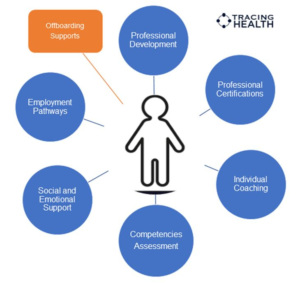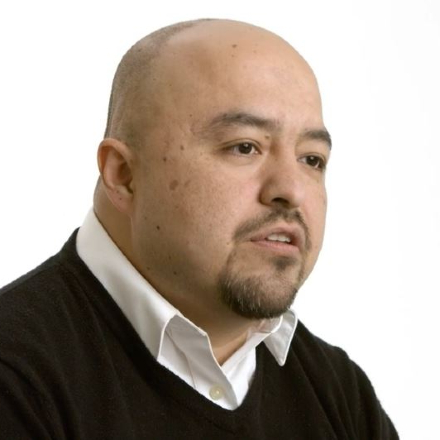Seeding Tomorrow’s Public Health Workforce
Program
Highlights

Team members of PHI’s Tracing Health program received ongoing support in launching their permanent healthcare or public health careers. The program focused on people who are traditionally overlooked in public health—those from underserved communities who may not have four-years of college or advanced degrees—providing them with the support they need to pursue professional health careers.
100+ hours of training provided to all Tracing Health staff
60% of Tracing Health staff come are from the communities they serve
-
Focus Areas
Communicable Disease Prevention -
Issues
Workforce Development -
Strategic Initiatives
COVID-19
In late 2020 PHI created our Tracing Health program and through mid-2021 California counties had assigned more than 40,000 COVID-19 cases to the program for contact tracing and case investigations. The program hired more than 600 new team members for their COVID-19 work, helping to seed the beginning of tomorrow’s public health workforce.
Tracing Health team members — made up of 93% bi- or multi-lingual contact tracers and resource coordinators, speaking more than 50 languages, with 60% coming from the communities they serve — receive ongoing support in launching their permanent healthcare or public health careers. The program focused on people who are traditionally overlooked in public health — those from underserved communities who may not have four-years of college or advanced degrees — providing them with the training, mentoring, support and other wrap-around services they need to pursue professional health careers. They recruit primarily in communities of color, and provide jobs with a living wage, full benefits, and extensive and ongoing job training. This not only helps communities meet their immediate health needs, but also builds a pipeline for long-term health equity by supporting community members as the next generation of public health and health care leaders.

We are all trained in mental health first aid, and I am also now taking a Migrant Health and Nutrition certification. These are going to help propel me to my ultimate goal of helping the Latino community in terms of mental health and general health.Paulina Jafarzadeh, Tracing Health bilingual contact tracer
Staff receive over 100 hours of training and a variety of career development opportunities to build and deepen their public health skillset. Through its comprehensive training and workforce development process, Tracing Health supports its staff from the time they are hired throughout their time at PHI and beyond, including:
- Providing paid, on-the-job training and professional development opportunities.
- Supporting staff in pursuit of formal professional certifications, such as Occupational Health, Mental Health First Aid, Migrant Health and others.
- Offering personal, one-on-one job search coaching, including resume review, networking, interview skills and more.
- Providing employee evaluations focusing on strengths and areas of focus for moving forward in their careers.
- Offering opportunities to explore employment pathways, such as job fairs and webinars with a wide range of health employers, including government, community-based organizations, advocacy groups, environmental health nonprofits, Peace Corps, community clinics, and other health focused groups.
- Creating social and emotional support systems, including network and mentoring supports that go beyond traditional employee assistance programs.
- Giving employees a head start for future remote work and/or continuing education, by allowing employees to keep their work equipment, including their laptop, monitor, and other office equipment after their contract with Tracing Health ends.
- Paying a retention bonus after their contract ends.

Many Tracing Health staff are already taking advantage of these opportunities and moving forward in their health careers. In 2021, four Tracing Health staff were admitted to the Keck Graduate Institute’s Master of Science in Community Medicine program, two of whom were awarded L.A. Care Scholarships to the program. In 2020, 23 staff took the opportunity to further their healthcare careers with additional training in a University of Delaware Advanced Telehealth Coordinator Certificate Program. Tracing Health is also training at least 25 first generation college students at UC Santa Cruz in contract tracing and case investigation, to help foster their career interests in public health.

I hope that our staff are able to land jobs with local public health departments or community-based agencies where they are able to continue this type of work, where they are able to continue to assist the community.Eden Lopez, Tracing Health bilingual deputy director
Ultimately, when healthcare and public health professionals look like and come from the communities they serve, their patients and communities receive better care, have healthier environments, and experience better health outcomes.
Click to read the Tracing Health briefing, “Workforce Development: Turning Pandemic Response Into a Long Term Investment in Health Equity,” and see a video describing Tracing Health’s approach to workforce development with the program’s workforce development adviser Carrie Rose, below.
Work With Us
You change the world. We do the rest. Explore fiscal sponsorship at PHI.
Support Us
Together, we can accelerate our response to public health’s most critical issues.
Find Employment
Begin your career at the Public Health Institute.

